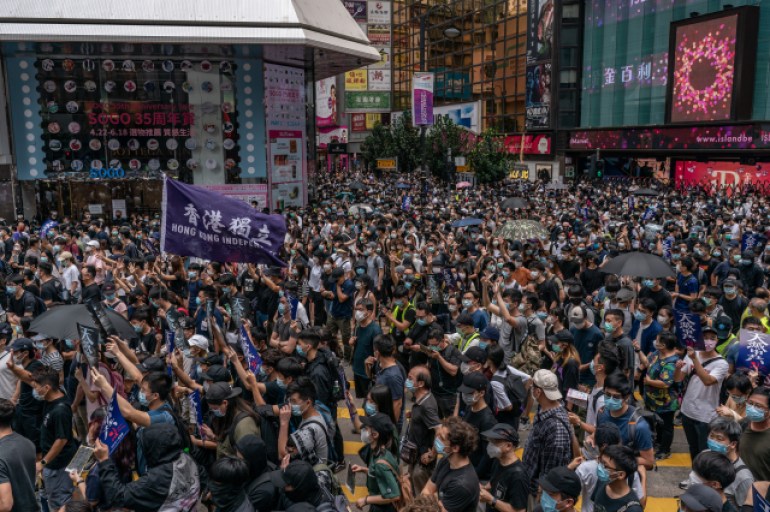The United States, Britain, Canada and Australia have condemned the Chinese government's decision Thursday on a new Hong Kong security law, which the four countries say threatens freedoms and violates the 1984 China-British agreement on city autonomy.
The statement - published by the US State Department - said the new law contradicts Beijing's international obligations, will limit the freedoms of the Hong Kong people, and will significantly undermine its autonomy and the system that has made it a bastion of freedoms and prosperity.
The signatory states also emphasized that the new security legislation would undermine the principle of one country with two systems, indicating that they had interests in the prosperity and stability of Hong Kong.
What happened in Parliament?
On Thursday, the Chinese parliament adopted a controversial measure on national security in Hong Kong, in response to last year's demonstrations, despite the threat of US sanctions.
In an expected move, deputies of the National People's Assembly - numbering about three thousand - voted in favor of the measure, which sparked renewed unrest in the semi-autonomous city in southern China.
Only one deputy voted against the text, six others abstained, and the deputies applauded long after the results of the vote were announced in the People's Palace Hall in Beijing, in the presence of President Xi Jinping.
China made this law a priority after the massive demonstrations in 2019 to protest against the influence of the Chinese central authority, and encouraged independence, but it was accompanied by violence.
Democratic opponents of Beijing's influence in the city assert that the measure opens the way to an unprecedented shrinkage of freedoms in the financial center of seven million people.
“It is the end, from now Hong Kong will become a Chinese city like any other,” said Claudia Mu, a pro-democracy representative in Hong Kong's Legislative Council.
The United States considered that Hong Kong was no longer autonomous, paving the way for a review of the trade concessions granted to the former British colony.
US Secretary of State Mike Pompeo said he had informed Congress that Hong Kong was no longer independent from the system in China, based on facts on the ground, and confirmed in a tweet on Twitter that the United States stood with the people of Hong Kong.
In a related context, the American mission to the United Nations said that China's plan to impose new national security legislation in Hong Kong raises a global concern implicitly affecting international peace and security.
China responds
. As for China, it considered that the legislation aims to address separatism, conspiracy, terrorism and foreign interference in the city, but the plan announced in Beijing last week led to the outbreak of the first major protests in Hong Kong in months.
The Chinese ambassador to the United Nations said that Washington's request to hold a meeting in the Security Council on Hong Kong is not based on grounds, pointing out that Hong Kong's national security legislation is an internal matter that the Security Council has nothing to do with, as he put it.
Under the principle of one country and two systems, Hong Kong has enjoyed, since its return to China in 1997 to 2047, some rights not seen in other regions of China, especially with regard to freedom of expression and an independent judicial system.
This special situation contributed to making the former British colony an important international financial position providing China with economic access to the world.

